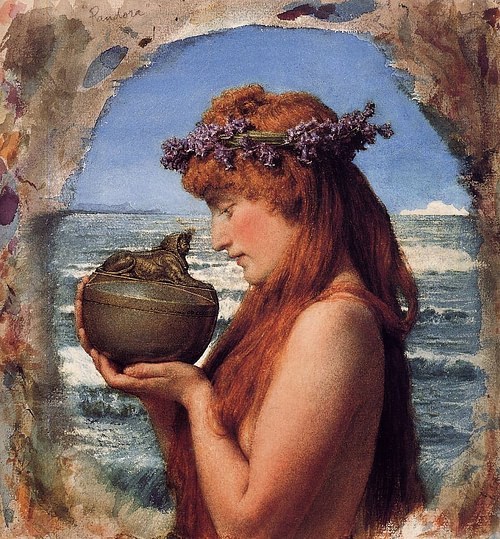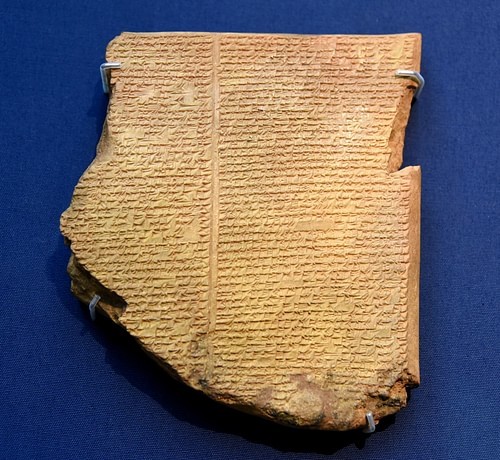What Is Mythology, and why does it captivate us across cultures and generations? Mythology is a rich tapestry of stories and beliefs, offering explanations for the world around us. At WHAT.EDU.VN, we believe in making complex topics accessible to everyone, providing a free platform to explore and understand the fascinating realm of mythology. Delve into the study of folklore, legends, and creation myths with us.
1. Defining Mythology: More Than Just Old Stories
Mythology, derived from the Greek words mythos (story of the people) and logos (word or speech), is essentially the spoken story of a people. It encompasses the study and interpretation of sacred tales, fables, and myths within a culture. These stories explore fundamental aspects of the human condition, including good and evil, the meaning of suffering, human origins, the origin of cultural elements, the meaning of life and death, the afterlife, and the actions of gods or a God.
Myths express a culture’s core beliefs and values. They tell stories of ancestors, the origin of humans and the world, gods, supernatural beings, and heroes with extraordinary powers. They also explain customs, natural events, and the cycles of life. As scholars Maria Leach and Jerome Fried put it, a myth is a story presented as having occurred in a previous age, explaining a people’s cosmological and supernatural traditions, their gods, heroes, cultural traits, and religious beliefs. Myths explain the creation of man, animals, landmarks, and natural phenomena, as well as the origins of rituals and ceremonies.
2. The Psychological Significance of Mythology
According to psychiatrist Carl Jung, myth is a necessary aspect of the human psyche. It provides meaning and order in a world that often seems chaotic. Myths offer a framework for understanding our place in the universe, providing comfort and a sense of belonging.
Jung argued that the psyche, as a reflection of the world and man, is infinitely complex. Because a systematic study of the world is beyond our powers, we create our own systems and segments of the world. The allure of mythology lies in its numinous quality, providing a final meaning to human existence and offering hope in an uncertain world. As Leach and Fried noted, this mysterious, holy, and powerful quality is a basic psychological reaction to the universe and environment, underlying all religion.
3. Mythology as Ancient Religion
What we call “mythology” today was the religion of the ancient past. These stories served the same purpose as scriptures do today: they explained, comforted, and directed an audience, providing unity, cohesion, and protection to a community of believers.
4. Exploring the Monomyth: Universal Themes in Mythology
Scholar Joseph Campbell, known for his work on comparative mythology, highlighted the underlying form of every civilization and the underpinning of individual consciousness. In his book, The Hero with a Thousand Faces, Campbell discusses the “monomyth,” the similarities in theme, characters, purpose, and narrative progression found in myths from different cultures throughout history.
Campbell suggests that myths teach meaning, empowering, stabilizing, and elevating life from a mundane existence to one imbued with eternal significance. On a basic level, a myth explains a phenomenon, tradition, place-name, or geological formation. It can elevate a past event to epic and supernatural significance and provide a role model for individual life journeys.
5. Types of Myths: Etiological, Historical, and Psychological
Myths can be grouped into three main categories:
5.1. Etiological Myths: Explaining Origins
Etiological myths (from the Greek aetion, meaning “reason”) explain why things are the way they are or how they came to be. These are origin stories.
- Egyptian Mythology: The sycamore tree is home to the goddess Hathor, the Lady of the Sycamore.
- Norse Mythology: Thunder is Thor’s chariot racing across the heavens.
- Greek Mythology: Pandora’s Box explains how evil and suffering were released into the world.
- Chinese Mythology: The goddess Nuwa instituted marriage so humans could reproduce.
5.2. Historical Myths: Elevating the Past
Historical myths retell past events, elevating them with greater meaning.
- The Mahabharata: The Battle of Kurukshetra symbolizes different values and provides role models.
- The Bible: Abrahamic narratives with religious significance.
- Homer’s Iliad: The Siege of Troy and its fall.
- Homer’s Odyssey: Odysseus’ journey home.
- Virgil’s Aeneid: Aeneas’ adventures.
5.3. Psychological Myths: Journeys of Self-Discovery
Psychological myths present a journey from the known to the unknown. These stories involve a hero or heroine discovering their true identity or fate, resolving a crisis, and providing the audience with important cultural values.
- Oedipus: The prince who tries to avoid his fate but ultimately fulfills it, teaching the futility of escaping destiny.
6. Famous Myths from Around the World
6.1. Demeter and Persephone: An Etiological Myth
The Greek myth of Demeter, goddess of the harvest, and her daughter Persephone, explains the seasons. Persephone is kidnapped by Hades, causing Demeter’s sorrow and the failure of crops. Zeus orders Hades to restore Persephone, but because she ate pomegranate seeds, she must spend half the year in the underworld. This explains the changes in seasons and how people learned agriculture.
6.2. The Iliad: A Historical Myth
Homer’s Iliad tells the story of the siege and fall of Troy. Helen’s abduction by Paris leads to war, and the central theme emphasizes the dangers of excessive pride. The story highlights the cultural value of balancing self-respect with humility.
6.3. Fuxi: A Chinese Historical Myth
Fuxi, the god of fire, helped the goddess Nuwa by teaching humans how to use fire, weave fishing nets, and develop the arts of divination, music, and writing. This myth may be based on a historical king who brought order to China and emphasizes the importance of service and humility.
6.4. The Epic of Gilgamesh: A Psychological Myth
The Epic of Gilgamesh is the oldest known psychological myth. Gilgamesh, a proud king, learns humility through the death of his friend Enkidu and his quest for immortality. Although he fails to achieve eternal life, his journey makes him a wiser and better king.
6.5. The Hero’s Journey: A Universal Psychological Myth
Joseph Campbell identified “the Hero’s Journey,” a narrative pattern in which a hero or heroine separated from their true identity embarks on a transformative journey. This pattern is evident in stories like Star Wars, showcasing the enduring power of mythological themes and symbols.
7. The Enduring Power of Mythology
Every culture has its own mythology, and the themes found in these stories echo across the world. Myths provide a truth that audiences interpret within their cultural value systems. The Greek tale of Prometheus parallels the Chinese tale of Fuxi. Creation stories from China and the Maya mirror those of Mesopotamia, where gods struggle to create perfect humans.
The story of the Great Flood is found in nearly every culture, and the figure of the Dying and Reviving God appears in various mythologies, including the Sumerian tales of Gilgamesh, the Egyptian myth of Osiris, the Greek stories of Dionysus and Persephone, the Phoenician Baal Cycle, the Hindu Krishna, and Jesus Christ.
As Joseph Campbell notes, myths have flourished throughout the inhabited world, inspiring human culture. Religions, philosophies, arts, social forms, and scientific discoveries all stem from the magic ring of myth.
8. Mythology’s Timeless Questions
Mythology tries to answer the most fundamental questions of human existence: Who am I? Where did I come from? Why am I here? Where am I going? To the ancients, the message of the myth was paramount, not the literal truth of its details. The purpose of a myth was to provide a truth that the audience interpreted within their cultural value system.
Understanding reality was left to the individual’s interpretation, rather than being dictated by authority figures. This remains the key difference between a sermon and an individual experience with religious mythology; myths have the potential to elevate and transform individual understanding through symbolic landscapes, characters, images, and themes.
9. Common Questions About Mythology
| Question | Answer |
|---|---|
| What is the origin of the word “mythology?” | It comes from the Greek words “mythos” (story of the people) and “logos” (word or speech). |
| What are the main functions of mythology? | Explaining natural phenomena, preserving cultural values, providing psychological meaning, and connecting people to their origins. |
| What is the monomyth or hero’s journey? | A recurring narrative pattern found in myths across cultures, involving a hero’s transformation and return. |
| How does mythology differ from religion? | Mythology can be seen as the pre-scientific explanations and cultural narratives of past societies, while religion often involves organized beliefs, rituals, and institutions. |
| How do myths reflect cultural values? | Myths often embody a society’s moral, ethical, and social norms, teaching lessons and reinforcing cultural identities. |
| What role does mythology play in literature? | Mythology provides rich sources of inspiration for themes, characters, and archetypes in literature, enriching storytelling with depth and meaning. |
| Can myths be interpreted in different ways? | Yes, myths are open to interpretation, allowing individuals and cultures to find personal and collective meaning in them. |
| What is the difference between myths and legends? | Myths typically deal with gods, creation, and supernatural events, while legends are often based on historical figures or events that have been embellished over time. |
| How does mythology impact modern society? | Mythological themes and symbols continue to influence art, literature, film, and popular culture, shaping our understanding of human nature and society. |
| Where can I learn more about mythology? | Numerous resources are available, including books, documentaries, university courses, online educational platforms, and cultural institutions. Websites like WHAT.EDU.VN also provide free, accessible information. |



10. Uncover the Mysteries of Mythology with WHAT.EDU.VN
At WHAT.EDU.VN, we understand that navigating the vast world of knowledge can be challenging. That’s why we’ve created a user-friendly platform where you can ask any question and receive clear, concise answers. Are you struggling to understand a complex concept in mythology? Do you need help with a homework assignment or research project? Our team of experts is here to assist you.
We believe that everyone deserves access to high-quality information, regardless of their background or financial situation. That’s why we offer our services completely free of charge. You can ask questions, explore topics, and connect with a community of learners without ever having to worry about fees or subscriptions.
11. Need Answers? We’re Here to Help.
Do you find it difficult to find quick, free answers to your questions? Are you unsure where to turn for reliable information? Do you worry about the cost of consulting experts? WHAT.EDU.VN provides a free platform to ask any question, offering quick, accurate, and easy-to-understand answers. We connect you with a knowledgeable community for exchanging ideas and provide free advice for simple issues.
12. Ask Us Anything!
Ready to dive deeper into the world of mythology? Do you have questions about specific myths, characters, or themes? Don’t hesitate to reach out to us at WHAT.EDU.VN. We’re here to provide the answers you need to expand your knowledge and understanding.
Contact us:
- Address: 888 Question City Plaza, Seattle, WA 98101, United States
- WhatsApp: +1 (206) 555-7890
- Website: WHAT.EDU.VN
Don’t let your questions go unanswered. Visit what.edu.vn today and start exploring the fascinating world of mythology!